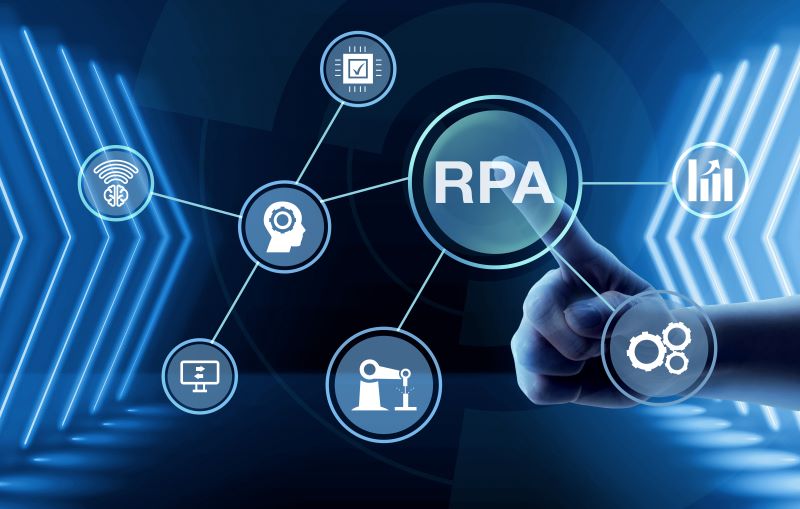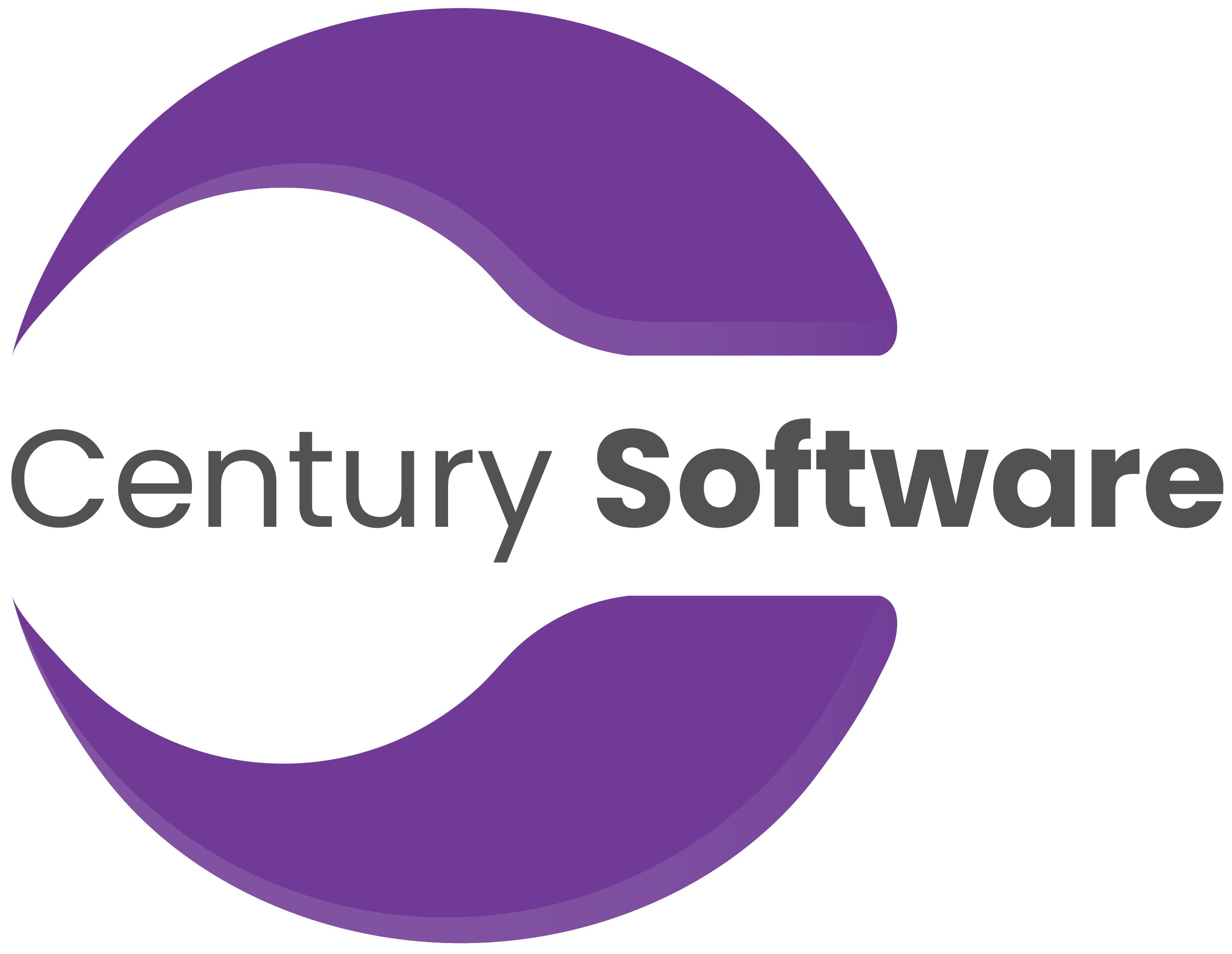Emerging Trends and Future Prospects of Robotic Process Automation Tools in the Market
Robotic Process Automation
Robotic Process Automation (RPA) refers to the use of software robots or bots to automate repetitive, rule-based tasks and processes within business operations. These tasks typically involve manual data entry, data extraction, data processing, and transaction processing, among others. RPA technology allows organizations to configure software robots to mimic human interactions with digital systems and applications, such as logging into software, navigating screens, entering data, and performing tasks with precision and speed.
Key characteristics of RPA
Rule-based Automation: RPA bots follow predefined rules and instructions to execute tasks, eliminating the need for human intervention in routine processes.
Non-invasive Integration: Robotic process automation technology interacts with existing IT systems and applications through their user interfaces, without the need for complex integrations or changes to underlying systems.
Scalability: RPA solutions can be easily scaled up or down to accommodate changes in business needs and process volumes, allowing organizations to deploy bots across multiple departments and functions.
Accuracy and Consistency: RPA bots perform tasks with high accuracy and consistency, reducing errors and ensuring data integrity in business operations.
Time and Cost Savings: By automating repetitive tasks, RPA helps organizations save time and reduce operational costs associated with manual labor, enabling employees to focus on more strategic and value-added activities.
Auditability and Compliance: RPA solutions provide detailed logs and audit trails of bot activities, facilitating compliance with regulatory requirements and internal controls.
The RPA technology enables organizations to streamline processes, improve efficiency, and enhance productivity across various industries and business functions. It offers a cost-effective and scalable approach to automation, empowering organizations to achieve operational excellence and drive innovation in today’s digital age.
Importance of RPA in streamlining business processes
Robotic Process Automation (RPA) plays a pivotal role in streamlining business processes across industries, offering a multitude of benefits that contribute to enhanced efficiency, productivity, and agility. Here are some key reasons why RPA is essential in streamlining business processes:
- Efficiency and Accuracy
- Cost Reduction
- Increased Productivity
- Faster Processing Times
- Scalability and Flexibility
- Improved Customer Experience
- Enhanced Compliance and Auditability
- Business Process Optimization
As organizations continue to embrace digital transformation, RPA will remain a key enabler for driving operational excellence and achieving competitive advantage in today’s rapidly evolving business landscape.
Emerging Trends in Robotic Process Automation Tools
Emerging Trends in Robotic Process Automation (RPA) Tools reflect the evolution of automation technologies to meet the changing needs of businesses. Here are some of the key trends shaping the future of RPA tools:
Intelligent Process Automation (IPA): Integration of Artificial Intelligence (AI) and Machine Learning (ML) capabilities into Robotic Process Automation tools is enabling Intelligent Process Automation (IPA). These advanced RPA solutions can analyze unstructured data, make decisions based on context, and adapt to changing conditions, allowing for more complex and cognitive automation scenarios.
Hyperautomation: Hyperautomation combines RPA with complementary automation technologies such as process mining, workflow automation, and decision management. This holistic approach to automation enables organizations to automate end-to-end processes seamlessly, from discovery and analysis to execution and optimization.
Cloud-Based RPA Solutions: There’s a growing trend towards cloud-based RPA solutions, driven by the scalability, flexibility, and cost-effectiveness of cloud computing. Cloud-based RPA platforms offer easier deployment, management, and scalability, allowing organizations to accelerate their automation initiatives without the need for extensive infrastructure investments.
Low-Code/No-Code RPA Platforms: Low-code or no-code RPA platforms empower business users with limited technical expertise to create and deploy automation solutions without writing code. These platforms feature intuitive visual interfaces and pre-built templates, enabling citizen developers to automate tasks and processes quickly and easily.
Process Discovery and Mining: Robotic Process Automation tools are increasingly incorporating process discovery and mining capabilities, allowing organizations to identify automation opportunities more efficiently. By analyzing user interactions and system logs, RPA tools can discover and prioritize processes for automation, accelerating the automation journey.
Cognitive Automation and Natural Language Processing (NLP): RPA tools are leveraging cognitive automation capabilities, including Natural Language Processing (NLP), to interact with users and systems more intelligently. This enables RPA bots to understand and process natural language inputs, such as emails, chat messages, and documents, facilitating more sophisticated automation scenarios.
Embedded Analytics and Insights: RPA tools are integrating analytics and reporting capabilities to provide actionable insights into process performance and automation ROI. By monitoring key metrics and KPIs, organizations can track the impact of automation initiatives, identify areas for optimization, and make data-driven decisions to drive continuous improvement.
Robotic Process Mining: Robotic Process Mining combines RPA with process mining techniques to analyze and optimize business processes continuously. By capturing data from user interactions and system logs, Robotic Process Automation tools can identify inefficiencies, bottlenecks, and compliance issues in processes, enabling organizations to streamline workflows and drive operational excellence.
Compliance and Security Features: With the increasing focus on data privacy and security, RPA tools are incorporating robust compliance and security features. These include encryption, access controls, audit trails, and compliance monitoring capabilities, ensuring that automation initiatives adhere to regulatory requirements and industry standards.
Vertical-Specific RPA Solutions: RPA vendors are developing industry-specific solutions tailored to the unique needs and challenges of vertical markets such as banking, healthcare, insurance, and manufacturing. These vertical-specific RPA solutions offer pre-built templates, regulatory compliance frameworks, and industry-specific integrations, enabling organizations to accelerate automation adoption and achieve faster time-to-value.
Overall, emerging trends in RPA tools reflect a shift towards more intelligent, holistic, and user-friendly automation solutions that empower organizations to achieve greater efficiency, agility, and innovation in their business processes. As RPA technology continues to evolve, organizations can expect to see further advancements in AI-driven automation, cloud-based deployment models, citizen developer empowerment, process discovery and mining capabilities, and industry-specific solutions tailored to their unique requirements.
Future Prospects of Robotic Process Automation Tools
Future prospects of Robotic Process Automation (RPA) tools showcase a trajectory towards continued innovation, widespread adoption, and expanded capabilities. Here’s a glimpse into the future of RPA tools:
Integration with Emerging Technologies: Robotic Process Automation tools will increasingly integrate with emerging technologies such as Artificial Intelligence (AI), Machine Learning (ML), Natural Language Processing (NLP), and Cognitive Automation. This integration will enable RPA bots to perform more complex tasks, make intelligent decisions, and adapt to dynamic environments, unlocking new possibilities for automation across diverse use cases.
Focus on Hyperautomation: The concept of Hyperautomation, which combines RPA with complementary automation technologies such as process mining, workflow automation, and decision management, will gain prominence. Organizations will adopt a holistic approach to automation, leveraging a combination of tools and technologies to automate end-to-end processes seamlessly and drive digital transformation initiatives.
Cloud-Based Deployment Models: Cloud-based deployment models will become the preferred choice for RPA implementations, offering scalability, flexibility, and cost-effectiveness. Organizations will leverage cloud-based RPA platforms to accelerate automation initiatives, reduce infrastructure overhead, and scale automation capabilities to meet evolving business needs.

Enhanced Cognitive Automation: Cognitive automation capabilities will continue to evolve, enabling Robotic Process Automation tools to understand and process unstructured data, interact with users more intelligently, and perform tasks with greater autonomy. RPA bots will leverage advanced AI algorithms and NLP techniques to analyze text, images, and speech, facilitating more sophisticated automation scenarios.
Vertical-Specific Solutions: RPA vendors will develop industry-specific solutions tailored to the unique needs and challenges of vertical markets such as banking, healthcare, insurance, and manufacturing. These vertical-specific RPA solutions will offer pre-built templates, regulatory compliance frameworks, and industry-specific integrations, enabling organizations to accelerate automation adoption and achieve faster time-to-value.
Augmented Workforce: Robotic Process Automation tools will augment the workforce by automating repetitive tasks, freeing up employees to focus on higher-value activities that require human judgment, creativity, and emotional intelligence. This human-machine collaboration will drive productivity gains, enhance employee satisfaction, and foster a culture of innovation within organizations.
Advanced Analytics and Insights: Robotic Process Automation tools will provide advanced analytics and insights into process performance, automation ROI, and business outcomes. By monitoring key metrics and KPIs, organizations will gain actionable insights into their automation initiatives, enabling them to optimize processes, identify opportunities for improvement, and make data-driven decisions to drive continuous innovation and growth.
Regulatory Compliance and Security: With the increasing focus on data privacy and security, Robotic Process Automation tools will incorporate robust compliance and security features to ensure adherence to regulatory requirements and industry standards. These features will include encryption, access controls, audit trails, and compliance monitoring capabilities, enabling organizations to mitigate risks and maintain trust with customers and stakeholders.
As organizations embrace digital transformation and automation becomes increasingly integral to business operations, RPA tools will play a critical role in driving efficiency, agility, and innovation across industries, shaping the future of work in the digital age.
Century Software: Pioneering RPA Solutions for Digital Transformation
In conclusion, the emerging trends and future prospects of Robotic Process Automation (RPA) tools hold significant promise for businesses seeking to enhance efficiency and drive digital transformation. The Robotic Process Automation tools are poised to revolutionize business processes across industries. Century Software stands at the forefront of this transformative wave, offering cutting-edge RPA solutions designed to address the dynamic needs of modern enterprises. By embracing emerging trends such as cloud-based deployment models, integration with emerging technologies, and vertical-specific solutions, Century Software empowers organizations to unlock new levels of efficiency, agility, and innovation. As businesses navigate the digital landscape, Century Software serves as a trusted partner, providing the tools and expertise needed to leverage the full potential of RPA and thrive in the competitive market landscape. Contact Century Software now.

